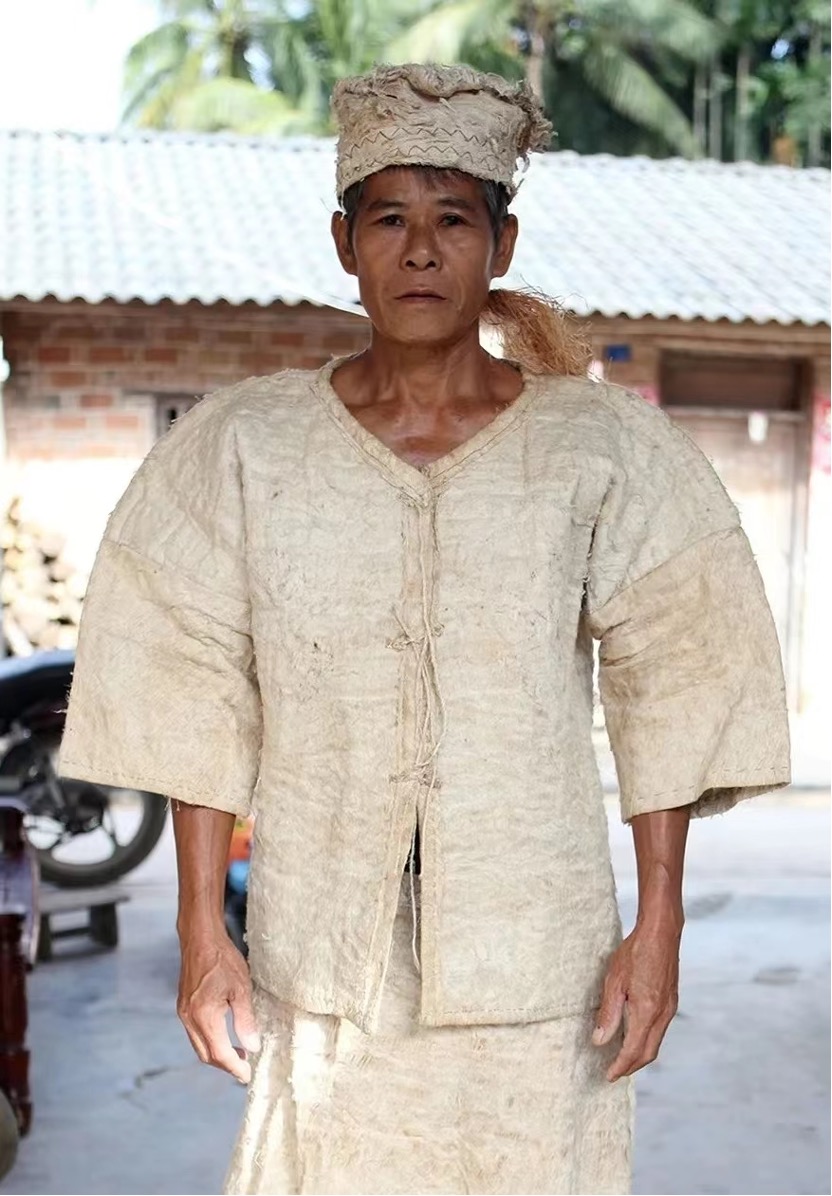
A man from the Li ethnic group wears clothes made from tree bark cloth. /Photo provided to CGTN
A man from the Li ethnic group wears clothes made from tree bark cloth. /Photo provided to CGTN
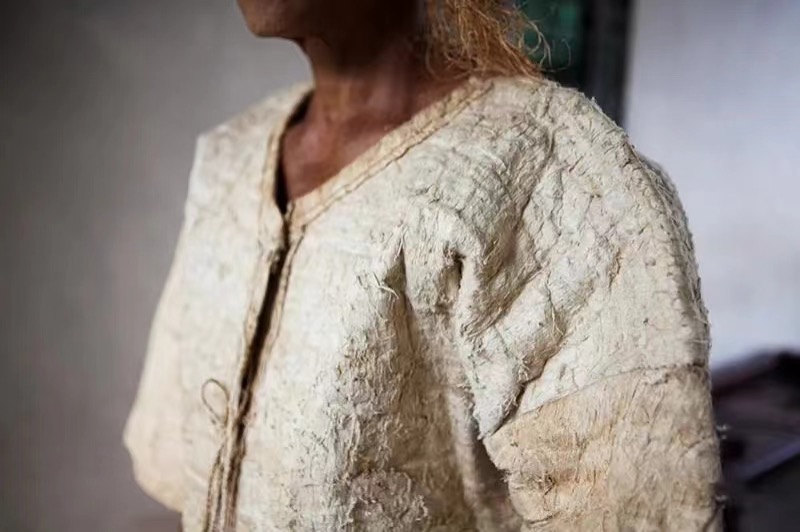
A man from the Li ethnic group wears clothes made from tree bark cloth. /Photo provided to CGTN
A man from the Li ethnic group wears clothes made from tree bark cloth. /Photo provided to CGTN
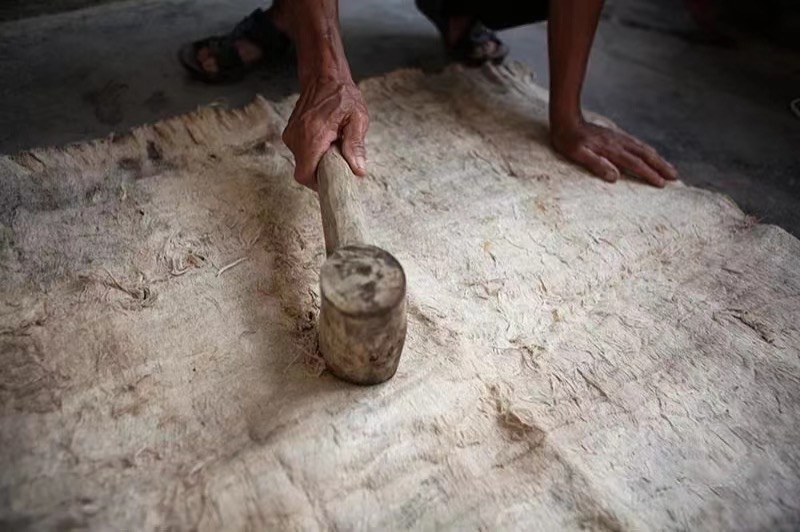
A photo shows the process of making tree bark cloth. /Photo provided to CGTN
A photo shows the process of making tree bark cloth. /Photo provided to CGTN
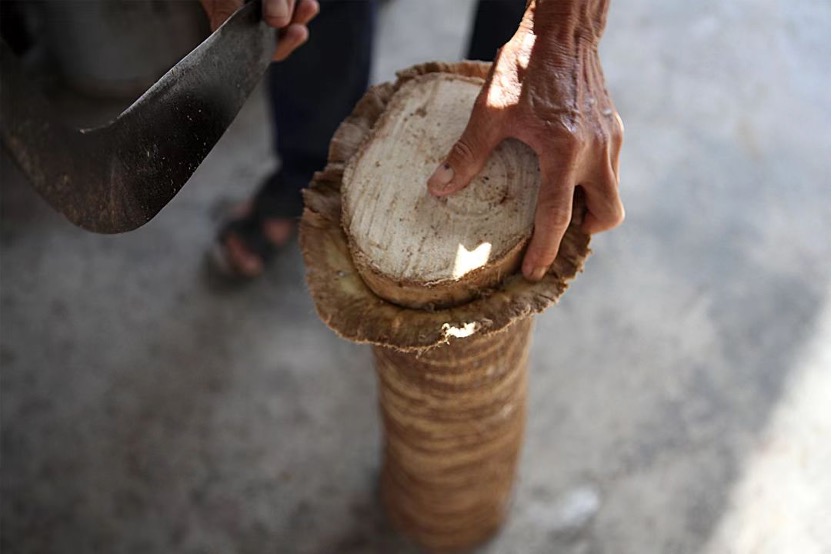
A photo shows the process of making tree bark cloth. /Photo provided to CGTN
A photo shows the process of making tree bark cloth. /Photo provided to CGTN
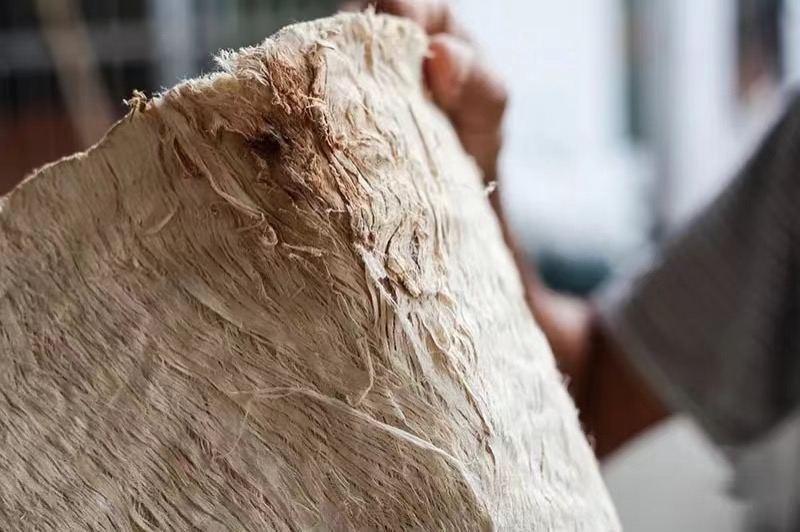
A photo shows a close-up detail of the tree bark. /Photo provided to CGTN
A photo shows a close-up detail of the tree bark. /Photo provided to CGTN
The tree bark cloth-making technique of the Li ethnic group from the southern island province of Hainan has been recognized as an important traditional handicraft and a national-level intangible cultural heritage.
The technique itself involves the transformation of plant bark into fabric through a process known as beating. In ancient times, before the advent of woven cloth, the Li ethnic group developed this innovative method of creating clothing using tree bark. Among the various types of bark available on the island, the bark of the upas tree was found to be the most suitable material for this purpose.
Preserving and promoting the technique as an intangible cultural heritage not only ensures the continuation of this traditional craft but also contributes to the cultural identity and heritage of the Li people.